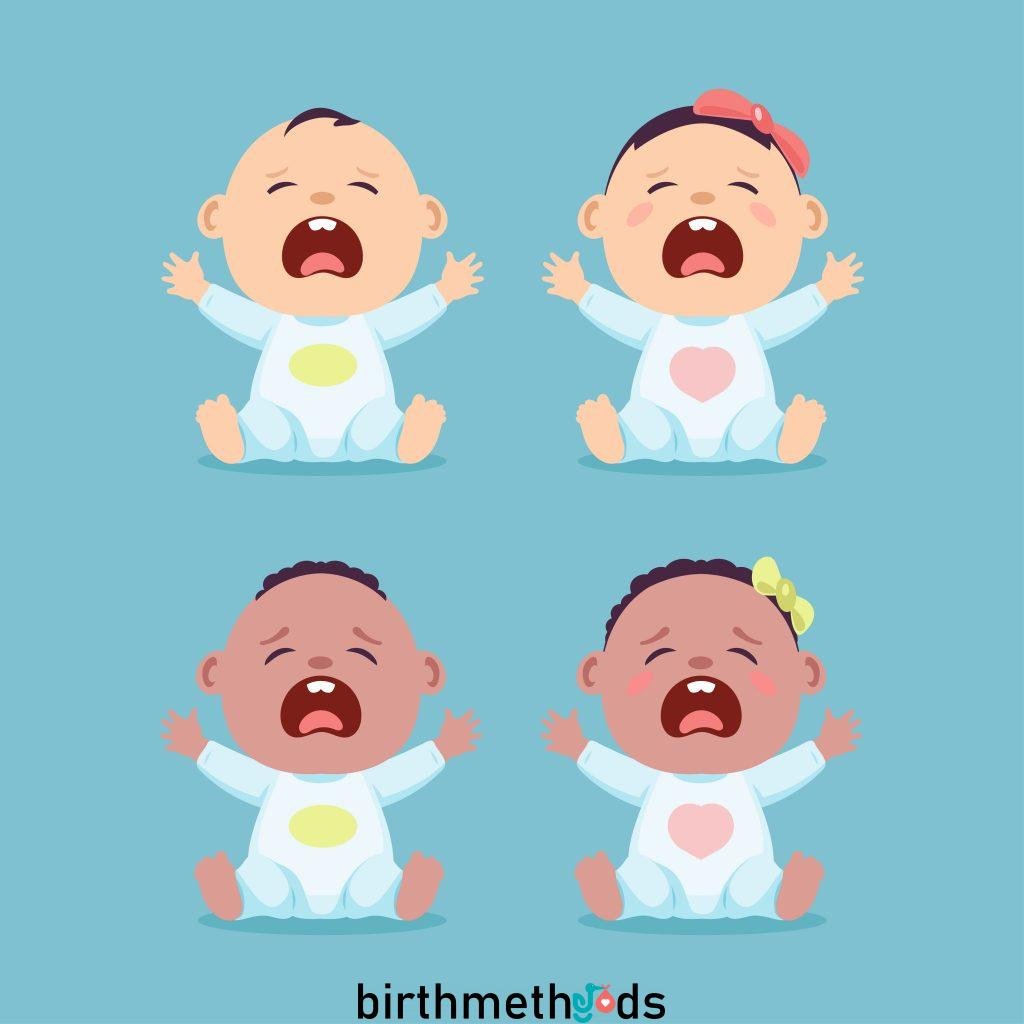Colic in infants occurs when the baby cries frequently despite not having any health problems. Crying that lasts more than 3 weeks or at least 3 days a week and more than 3 hours a day is called crying. Most of the time, you can’t stop your baby from crying. While parents are already tired and stressed, their children’s constant and unreasonable crying causes them to be even more stressed.
Colic can appear soon after the baby is born. It can usually appear between 4 and 6 weeks of age. Babies aged 3 to 4 months have less colic.
What are the symptoms of colic in babies?
It’s normal for babies to cry. Colicky babies cry a lot even though they are healthy. Other causes of colic can include:
- crying for no reason. For example, they are not hungry or their bottom is not dirty.
- Crying at specific times every day. Babies with colic are usually moody at certain times of the day.
- Pulls legs to stomach or clenches fists when crying.
- They cry like they have a sore spot.
- They blush when they cry.
Babies can swallow air when they cry. That makes the baby gas. As a result, his abdomen may be swollen or tense. Some relief may occur after stepping on the gas or after pooping.
What Causes Colic in Babies?
Doctors aren’t sure what causes colic. Studies show that there are many possible causes. We have listed some of them for you below.
- Pain or discomfort from gas
- Underdeveloped digestive system
- overfeeding or underfeeding
- sensitivity to breast milk
- migraine
- Emotional reactions such as fear, excitement
How is colic diagnosed?
A physical exam will review your baby’s medical history and symptoms. The doctor may order certain tests to rule out other health problems.
Can colic be prevented?
Colic in babies cannot be prevented.

How is colic treated?
Colic can be triggered by a number of things. Here are some ways to avoid them:
feed the baby
when the baby suckles;
- The mother should watch what she eats and drinks. Anything eaten passes onto the baby, so healthy things should be eaten. Stimulants such as caffeine and chocolate should be avoided.
- If the baby has allergies, avoid consuming dairy products or nuts.
- Tell your doctor about the medications you are taking.
When the baby is fed food;
- Choose a different brand instead of the formula used.
- Feed the baby more often in smaller portions.
- Avoid feeding the baby too quickly. With the help of a bottle, ensure that she is fed in an average of 20 minutes. If your baby still eats quickly, try a bottle with a smaller hole.
- Try to give the food he eats at a temperature close to his body temperature.
- Try feeding your baby while sitting.
Hold the baby in different positions
- You can comfort colicky babies by holding them in different positions or by shaking them.
- Massage your back.
- Hold your baby upright if you think he may have gas.
- Rock your baby in your arms or with the help of a baby swing.
comfort baby
Try the following to calm your baby.
- Give more hugs and physical contact.
- Swaddle the baby.
- Talk to your baby and sing songs to him.
- Bathe your baby with warm water or put a warm (warm) towel on his tummy.
- Massage your baby using the movements recommended by your doctor.
- Give your baby a pacifier.
- Take your baby for a walk with the help of the stroller.
- Use the medications your doctor recommends.
living with colic
Colic does not cause long-term problems in the baby. But baby colic can be stressful for parents. Caring for crying babies is quite difficult. You may be overwhelmed and disappointed. If you feel this way, you can get help. Ask someone close to you to take care of your baby.
The following are important things to know about colic:
- They aren’t the cause of colic, so don’t feel guilty.
- Colic will pass soon. Most babies do not have colic after they are 3 to 4 months old.
- Having colic doesn’t mean your baby is unhealthy.
- There are many ways to stop your baby from crying.
- Paying attention to your baby and holding it in your arms for a long time does not spoil it.
Serious symptoms:
- Take your baby to the emergency room right away if your baby has a fever, vomiting, bloody stools, decreased movement, or sudden changes in your baby’s crying or movements in addition to crying.
Some questions to ask your doctor:
- How will my baby recover from colic?
- How should I care for my baby to protect him from colic?
- Do I have to hold my baby upright for a certain amount of time after feeding?
- In which positions does my baby feel more comfortable?
- Do I need to take medication to relax my baby?
- What can I do to reduce stress and frustration when my baby is crying?
Our previous post 11 Ways to Predict Baby Gender During Pregnancy in our article baby, coming ve Gender information about.














